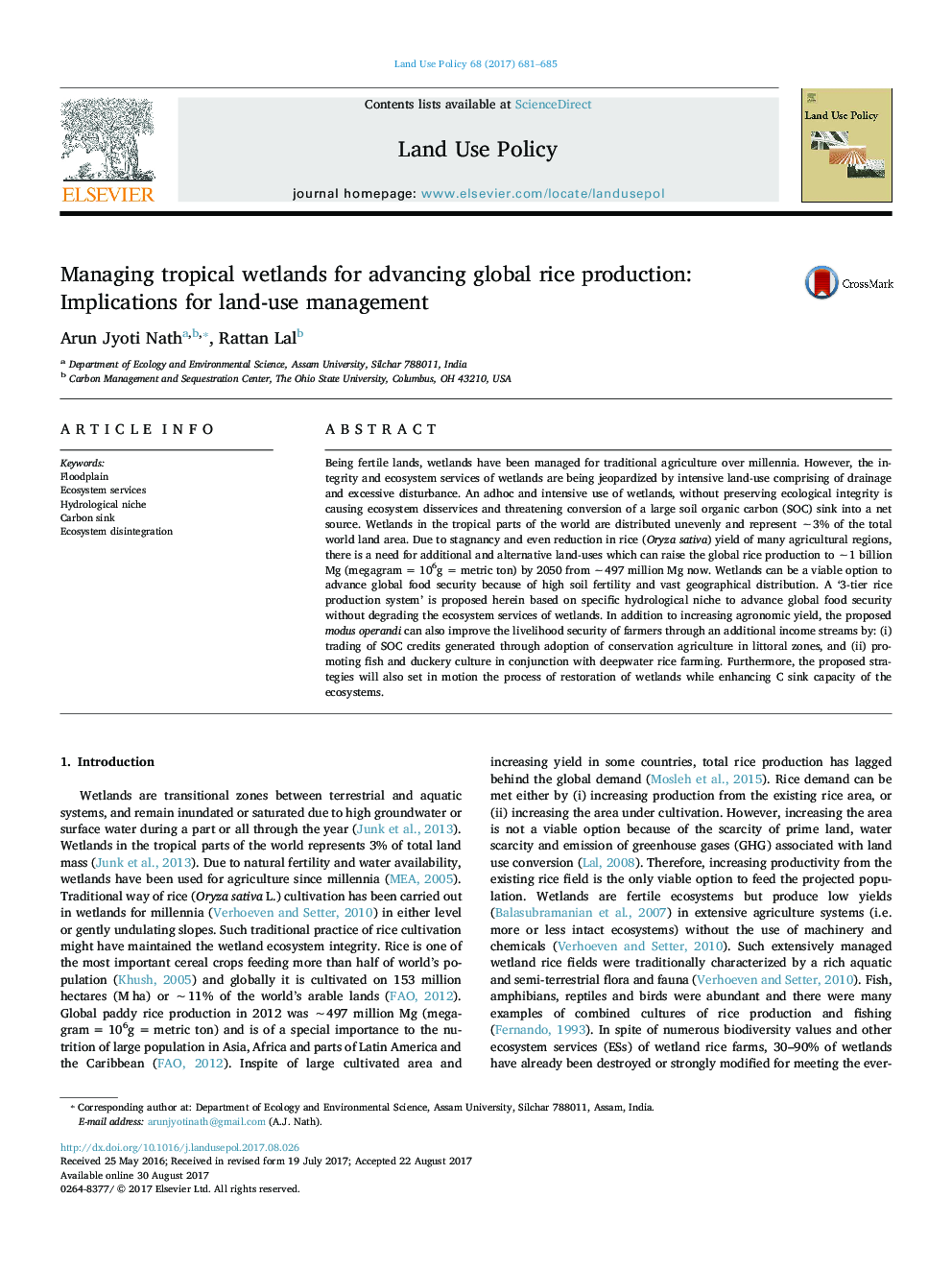| کد مقاله | کد نشریه | سال انتشار | مقاله انگلیسی | نسخه تمام متن |
|---|---|---|---|---|
| 6460619 | 1421815 | 2017 | 5 صفحه PDF | دانلود رایگان |
- Wetlands are fertile lands and have vast geographical distribution.
- Indiscriminate agricultural intensification has degraded wetland ecosystem services with little improvement in yield.
- Proposed '3-tier rice cultivation system' can advance global food security without degrading wetland ecosystem services.
- Proposed modus operandi can enhance productivity and also strengthen farmers income through payments for ecosystem services.
Being fertile lands, wetlands have been managed for traditional agriculture over millennia. However, the integrity and ecosystem services of wetlands are being jeopardized by intensive land-use comprising of drainage and excessive disturbance. An adhoc and intensive use of wetlands, without preserving ecological integrity is causing ecosystem disservices and threatening conversion of a large soil organic carbon (SOC) sink into a net source. Wetlands in the tropical parts of the world are distributed unevenly and represent â¼3% of the total world land area. Due to stagnancy and even reduction in rice (Oryza sativa) yield of many agricultural regions, there is a need for additional and alternative land-uses which can raise the global rice production to â¼1 billion Mg (megagram = 106g = metric ton) by 2050 from â¼497 million Mg now. Wetlands can be a viable option to advance global food security because of high soil fertility and vast geographical distribution. A '3-tier rice production system' is proposed herein based on specific hydrological niche to advance global food security without degrading the ecosystem services of wetlands. In addition to increasing agronomic yield, the proposed modus operandi can also improve the livelihood security of farmers through an additional income streams by: (i) trading of SOC credits generated through adoption of conservation agriculture in littoral zones, and (ii) promoting fish and duckery culture in conjunction with deepwater rice farming. Furthermore, the proposed strategies will also set in motion the process of restoration of wetlands while enhancing C sink capacity of the ecosystems.
Journal: Land Use Policy - Volume 68, November 2017, Pages 681-685
